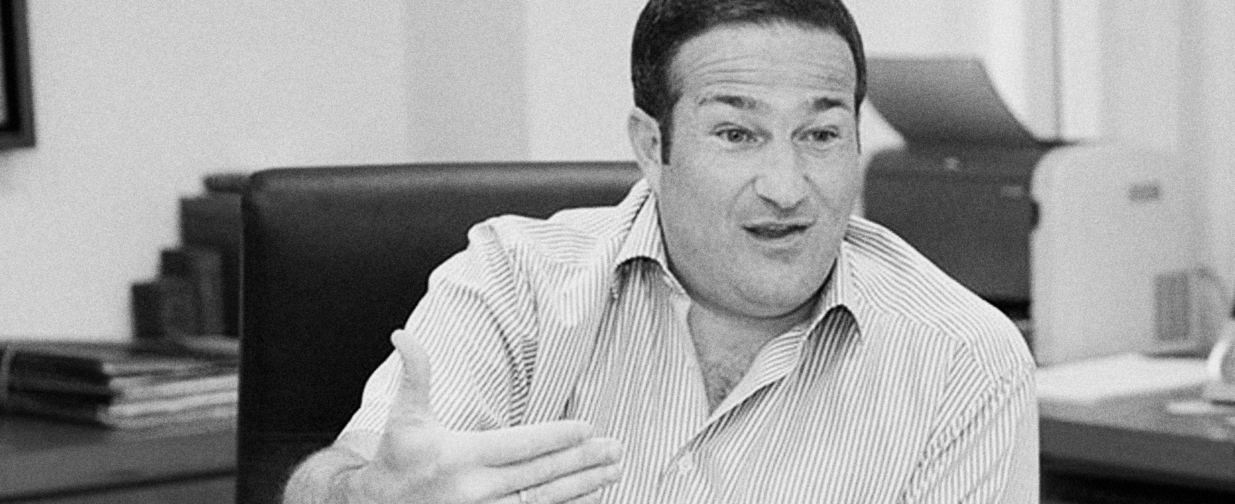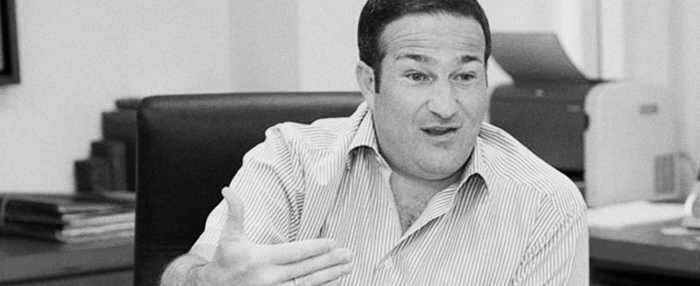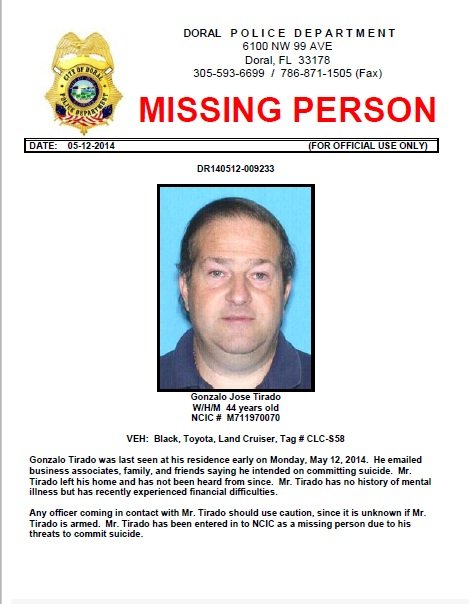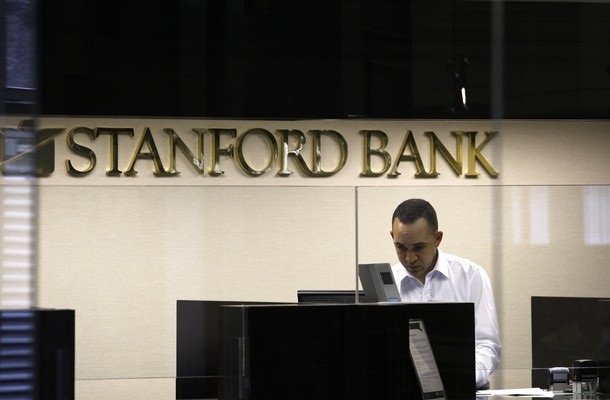

The ex-banker used the services of the Panamanian law firm Mossack Fonseca to register companies in tax havens while he was being tried in Venezuela by his ex-colleagues from the Stanford Group. He said he was a victim of chavism to be accepted as a client and thus protect his fortune.
|
Getting your Trinity Audio player ready...
|
Tirado said he was a victim of chavism. He hurriedly fled from Venezuela. He expressed his depression in several letters addressed to family and friends, who fearing a suicide, called the authorities in May 2014 to warn of his disappearance. The Doral police found him at the Wintage hotel in the city of Miramar, Florida. Without a doubt, a life full of scandals and legal complications.
According to communications and documents sent to Mossack Fonseca (MF) to become a client of the law firm, Tirado stated that his purpose was to create a "private organization in Panama to protect his inheritance" (the Caminos del Viento Foundation). At the same time, in a defense document prepared in 2010 by the Venezuelan lawyer Gonzalo Himiob with the purpose of demonstrating to MF that he was an honest man, he affirms that the charges against him in Venezuela were the result of a political persecution, and he described himself as "victim of chavism."
Those who knew him, though, say that "he was aggressive in business." He managed to have 10 thousand clients with high financial resources, eager for high returns in times of exchange control while he was a Stanford consultant, extremely comfortable and safe in the elegant office faced with green marble located in the San Ignacio Shopping Center in Chacao, Caracas.
"He was bold in business. He liked high-quality and top-brand things. He had a very ostentatious life," recalls a source that had a work and personal relationship with Tirado.
Even MF knew that his reputation was strongly questioned. The law firm hesitated to accept him as a client because of Tirado's lawsuit against his former mentor, Robert Allen Stanford —sentenced in 2012 to 110 years in prison for several fraud crimes related to a pyramid scheme of over 7,000 million dollars through his bank, Stanford Bank— but in the end, it was Jürgen Mossack himself, one of the two partners of the Panamanian firm, who gave the green light.

He had his home in El Hatillo, one of the most beautiful and elegant areas in Caracas, as indicated in his voting center. His annual salary of 3 million dollars allowed him to have that life, according to the consulted source, a person who preferred to remain unknown. He married and divorced twice and had four children. He currently lives in the United States with her third love partner, whom he met when she was married to one of his best friends.
After working for 14 years at Stanford Bank and having a close and friendly relationship with Allen Stanford, as he said to the Venezuelan media, he was fired in 2006. He sued the bank for moral damages and filed a labor claim for 18 million bolivars. He accused part of the Board of having spied on him for three years. According to sources who witnessed the diatribe, Tirado meeting with the then superintendent of the national tax office of Venezuela, José Gregorio Vielma Mora, to assure him that he was not involved in the fraud committed to the agency, was useless. He was being accused of having seized 180 million dollars.
Upon leaving Stanford, he immediately founded company Gonzalo Tirado & Asociados. During that time, he was involved in suspicious transactions with a lot of shares of Electricidad de Caracas while he owned the Uno Valores brokerage house. It is said that his fortune rocketed after this negotiation.
Representatives of MF offices based in Caracas and Panama helped him install the holding company with “general” business purposes or without specific purposes, according to the documents consulted. The key words in all of them were "banks and ships". One of the purposes of all the companies that were part of the holding company was to open bank accounts of any nature, with any bank and anywhere in the world.
Tirado became a client of the three companies of the MF group: Mossack Fonseca (law firm), Mosson Trust Corporation (trust) and Mossfom Asset Management (asset management).
In parallel, he acquired banks and created related companies in Venezuela. He bought InverUnion Banco Comercial to banker Ignacio Salvatierra and then acquired Mi Casa Entidad de Ahorro y Préstamo (savings and loan entity). The problems returned. In the middle of the so-called mini banking crisis in late 2009 and early 2010, the Venezuelan government started an investigation against Tirado for allegations of operations of doubtful legality and for having diverted funds from savers for Bs. 5 billion in loans to related companies.
According to the files, Tirado formed a structure to carry out operations to the detriment of the banks. The judicial qualification of "necessary accomplice" to commit crime adds to his list. On a February 14, Valentine's Day, he traveled to Aruba, as recorded in his latest immigration movement registered with Saime (Administrative Service of Identification, Migration, and Immigration), not avoid facing a trial with charges of up to ten years in prison.
The former banker requested political asylum in the USA in 2010. So far, the process continues before the US authorities, who also denied his extradition to Venezuelan territory. Until then, everything went well for Tirado, but not for several of the bank managers who accompanied him in InverUnion and Mi Casa EAP, who had to serve prison terms in the country.
The parallel structure of Gonzalo Tirado & Asociados began with a series of contacts and exchange of documentation between its offices in Caracas, located in El Rosal and MF offices in Venezuela and Panama in 2007. This financial structure began with the creation of Panbienes (Panamanian Property Fund), with a capital of 1 million 52 thousand dollars, and which end the bankruptcy of another financial institution took place once again.
The Superintendency of Banks of Panama sanctioned Panbienes several times until it ended closing its doors after reporting a pyramid scheme. The Board consisted of Tirado, accompanied by Edgar Montserrat, Ronald Rostoker and Martin Lustgarten —the latter has been involved in very high profile judicial cases in both Venezuela and the USA.
Another company registered in the isthmus in March 2007 is Richgrove International Inc, with directors other than Tirado and created to channel a 2.5 million dollar investment in the Finansbanken Bank of Copenhagen. On March 19, 2007, that company granted Tirado power to manage the company's bank account in Denmark.
Until 2007, Tirado was president of a company in Panama called Ema Business Inc - also ran by MF - created in April of that year with a capital of US$ 10,000. Based on MF leaked documents, it was disincorporated almost immediately. Even today, this firm continues appearing as active and its directors are Tirado’ usual partners: Pedro Paredes, Edgar Montserrat and Francisco Acevedo. While Montserrat (52% of the shares), Omar González and Daniel Vitrián (11.5% each), and Sacha Ratti, Francisco Gadea, Eduardo Saturno, and Amir Nassar Tayupe (6.25% in equal shares) also appear as shareholders.
Other companies of the Tirado-Paredes-Montserrat-Acevedo group are Gotir Holding Inc, FAL Business Inc, HR Development Inc., all part of GT Business Inc, also created with $ 10,000 capital and 100% owned by the former banker. The same group registered in 2007 through MF, the Caminos del Viento Foundation, which does business mainly in Panama.

The financial structure continued growing in 2008. Based on MF's communications, Tirado appears linked to company Greyrose Holdings Corp, registered on January 14, 2008 with a $ 10,000 capital. In this company, Tirado has equal shares with Pedro José Paredes Sierra, who joined the board of directors of Inverunion and Mi Casa EAP and was also accused of misappropriation or diversion of resources established in the General Law of Banks and other Financial Institutions.
The former banker is linked to another Panamanian company, Perth Consultants S.A. where he is beneficiary of 50%, and the other 50% belongs to Daniella Lainville de Tirado (his ex-wife). He is also associated with a company from the British Virgin Islands, Harley Sound Development LTD, created on January 23, 2008, although in the file of Tirado, Pedro José Paredes Sierra is the beneficiary of the 99% and Francisco Acevedo Landaluce (who was director of the Unovalores brokerage house) of the 1%.
Gainstone Foundation of Panama, assigned by MF to Tirado is the formal shareholder of these companies. It was registered in April 2009 and its shareholders are two foundations of Mossack Fonseca.
During this period, Panbienes was reported in Panama for being a sort of financial pyramid. In an email sent in March 2008 to MF, Martin Lustgarten refers to Tirado as "my ex-partner in Panbienes" and says that he has sold his shares in the company.
As a reference to open his account as a client in MF, Tirado submitted in 2007 a series of bank records in Venezuela (Banco Venezolano de Crédito and Banco Canarias) and in other countries (Wachovia in Miami, HSBC and UBS in Zurich).
In addition to the Danish Finansbanken, the Tirado group appears making strong foreign currency deposits at the Berenberg Bank of Switzerland, in the name of company Davenhill Assets S.A. It was registered in January 2007, with Edgar Montserrat as beneficiary. The internal exchange of emails of MF identifies these transactions as part of escrow accounts aimed to pay loan collaterals.
In one of the documents submitted to MF to request to be its client, Tirado said that he "aims to diversify his investments" and that the money to invest "is a part of his life savings".
In September 2010, Tirado apologized to MF for not being able to provide information about some companies that he had in the British Virgin Islands, because he did not have the documents "because of the way we left" from Venezuela, admitting in writing that his departure, even if not irregular, it was at least very hasty.
Tirado companies managed by MF appear to have been declared inactive in 2011. However, in 2013, the law firm was still talking about a debit balance of the former banker with them. Apparently, their reservations to accept him as a client were clear at that time.
Pequiven, a subsidiary of Petróleos de Venezuela, sought shelter in tax havens to legalize its association with Iranian company National Petrochemical Company, from which Veniran emerged. Although the Panamanian law firm was suspicious of the alliance between the then presidents Hugo Chávez and Mahmud Ahmadinejad, it finally solved the inconvenience to please both clients.
Leonardo González Dellán headed Banco Industrial de Venezuela (BIV) from 2002 to 2004. The papers of Mossack Fonseca reveal that, in this period, which also coincided with the establishment of the exchange control and the birth of the extinct Cadivi, he was related to overseas companies.
The last two major global investigations conducted by the International Consortium of Investigative Journalists revealed the offshore business of Eligio Cedeño, a former Venezuelan banker considered a fugitive from justice by some and politically persecuted by others. Company Cedel International Investment, owner of Bolívar Banco and Banpro, also requested the services of Mossack Fonseca to operate in the British Virgin Islands.
The name of the former head of the Venezuelan oil company in Colombia appears in the papers of Mossack Fonseca with 100% of the shares of a company created in June 2011, of which she requested to be dissolved six months later. She is unemployed since August 2015, when she was replaced by the ex-sister-in-law of President Nicolás Maduro
The so-called "insurance tsar" opened four offshore companies in a Caribbean island through the Panamanian law firm Mossack Fonseca. Corporación OFL, which consists of about 20 companies in his name, makes him one of the entrepreneurs in the insurance sector that has grown the most during the chavista government.
The former Vice President of Finance and director of the state oil company was one of the executives in the industry with more charges and accusations. In 2006, the Office of the Comptroller opened a proceeding against him for not filing the sworn statement of assets. In 2011, he became noticeable for his alleged participation in the Ponzi scheme of Francisco Illaramendi. In 2009, four years after having him as a client, Mossack Fonseca learned that he was a Politically Exposed Person, but maintained the business relationship because no "links to illegal activities" were found.
When Vice President Delcy Rodríguez turned to a group of Mexican friends and partners to lessen the new electricity emergency in Venezuela, she laid the foundation stone of a shortcut through which Chavismo and its commercial allies have dodged the sanctions imposed by Washington on PDVSA’s exports of crude oil. Since then, with Alex Saab, Joaquín Leal and Alessandro Bazzoni as key figures, the circuit has spread to some thirty countries to trade other Venezuelan commodities. This is part of the revelations of this joint investigative series between the newspaper El País and Armando.info, developed from a leak of thousands of documents.
Leaked documents on Libre Abordo and the rest of the shady network that Joaquín Leal managed from Mexico, with tentacles reaching 30 countries, ―aimed to trade PDVSA crude oil and other raw materials that the Caracas regime needed to place in international markets in spite of the sanctions― show that the businessman claimed to have the approval of the Mexican government and supplies from Segalmex, an official entity. Beyond this smoking gun, there is evidence that Leal had privileged access to the vice foreign minister for Latin America and the Caribbean, Maximiliano Reyes.
The business structure that Alex Saab had registered in Turkey—revealed in 2018 in an article by Armando.info—was merely a false start for his plans to export Venezuelan coal. Almost simultaneously, the Colombian merchant made contact with his Mexican counterpart, Joaquín Leal, to plot a network that would not only market crude oil from Venezuelan state oil company PDVSA, as part of a maneuver to bypass the sanctions imposed by Washington, but would also take charge of a scheme to export coal from the mines of Zulia, in western Venezuela. The dirty play allowed that thousands of tons, valued in millions of dollars, ended up in ports in Mexico and Central America.
As part of their business network based in Mexico, with one foot in Dubai, the two traders devised a way to replace the operation of the large international credit card franchises if they were to abandon the Venezuelan market because of Washington’s sanctions. The developed electronic payment system, “Paquete Alcance,” aimed to get hundreds of millions of dollars in remittances sent by expatriates and use them to finance purchases at CLAP stores.
Scions of different lineages of tycoons in Venezuela, Francisco D’Agostino and Eduardo Cisneros are non-blood relatives. They were also partners for a short time in Elemento Oil & Gas Ltd, a Malta-based company, over which the young Cisneros eventually took full ownership. Elemento was a protagonist in the secret network of Venezuelan crude oil marketing that Joaquín Leal activated from Mexico. However, when it came to imposing sanctions, Washington penalized D’Agostino only… Why?
Through a company registered in Mexico – Consorcio Panamericano de Exportación – with no known trajectory or experience, Joaquín Leal made a daring proposal to the Venezuelan Guyana Corporation to “reactivate” the aluminum industry, paralyzed after March 2019 blackout. The business proposed to pay the power supply of state-owned companies in exchange for payment-in-kind with the metal.